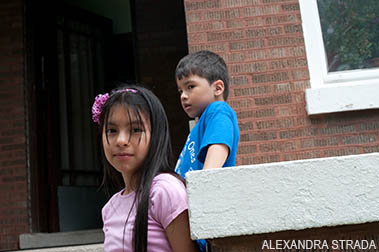
Who is an unaccompanied child?
An unaccompanied child is defined by U.S. law as someone who enters the United States:
- Under the age of 18 years old,
- Without lawful status, and
- Without an accompanying parent or legal guardian.
The National Immigrant Justice Center (NIJC) and its network of 2,000 pro bono attorneys provide legal counsel and representation to nearly 10,000 immigrants each year, including thousands of unaccompanied children detained in the Chicago area. Children seek refuge in the United States for many reasons: to escape war, gangs, or violence; to flee abuse; or to reunite with family. Others enter involuntarily as labor or sex trafficking victims. In recent years, we have seen the U.S. government unabashedly use unaccompanied children as bait to arrest and detain their loved ones, secure more funding for immigration enforcement, and racially profile teens in order to significantly reduce their shot at due process in immigration court.
Unaccompanied children seeking safety in the United States do not have the right to appointed counsel in immigration court, even as they face an immigration judge and government-funded Immigration and Customs Enforcement (ICE) prosecutor. To help fill this gap, NIJC provides legal services to unaccompanied children in government custody in the Chicago area. The Children’s Protection Project visits facilities on a weekly basis to interview the children, conduct legal assessments, and deliver “Know Your Rights” presentations that provide an overview of the immigration court process. Unfortunately, NIJC lacks the funding to offer every child representation in their immigration court case. From this direct work with children seeking protection in the U.S., NIJC has a unique in-depth perspective on the realities children face when they enter the U.S. alone, and on the need for systemic reforms to ensure children's human and due process rights in the complex immigration legal system.
In 2008, Congress passed the Trafficking Victims Protection Reauthorization Act, requiring special care and protections for children when they approach our borders alone. The bill, passed on unanimous consent, recognizes that immigrant children are children, first and foremost, and mandates protective procedures for unaccompanied children, given the high risk that they will be subject to exploitation, trafficking, or violence. Over the years, both executive and legislative branches have sought to strip those protections from children, including access to legal services and a fair day in court, in order to expel or deport children as quickly as possible.

